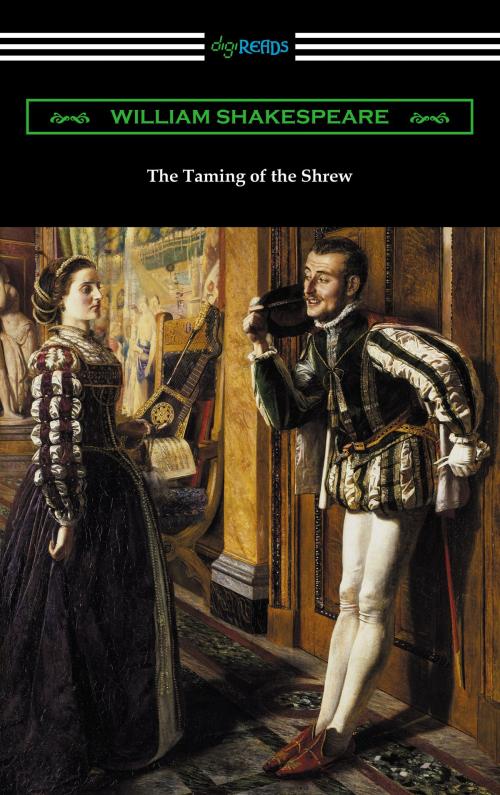The Taming of the Shrew (Annotated by Henry N. Hudson with an Introduction by Charles Harold Herford)
Nonfiction, Entertainment, Drama, Shakespeare, Fiction & Literature| Author: | William Shakespeare | ISBN: | 9781420953398 |
| Publisher: | Neeland Media LLC | Publication: | May 31, 2016 |
| Imprint: | Digireads.com Publishing | Language: | English |
| Author: | William Shakespeare |
| ISBN: | 9781420953398 |
| Publisher: | Neeland Media LLC |
| Publication: | May 31, 2016 |
| Imprint: | Digireads.com Publishing |
| Language: | English |
Baptista Minola, a lord in Padua, insists that if his youngest daughter Bianca is to be married that her older sister Katherine be married first. Bianca, the more desirable of the two sisters, has no shortage of suitors. However, Katherine, the titular “shrew,” has a temper so notorious that it is thought that no man would ever wish to marry her. When Petruchio comes to town in search of a wife, Hortensio, one of Bianca’s suitors convinces Petruchio to marry Katherine. Only interested in her money, Petruchio marries Katherine and returns with her to his country house in Verona in order to “tame” her, a task that he soon finds out is more than he bargained for. Meanwhile, Gremio, Lucentio, and Hortensio, now free to court Bianca, all vie for her hand in marriage. Believed to have been written between 1590 and 1592, “The Taming of the Shrew” is a comedy by William Shakespeare which has met with some criticism in the modern era for its apparent misogynistic elements. This edition is annotated by Henry N. Hudson and includes an introduction by Charles Harold Herford.
Baptista Minola, a lord in Padua, insists that if his youngest daughter Bianca is to be married that her older sister Katherine be married first. Bianca, the more desirable of the two sisters, has no shortage of suitors. However, Katherine, the titular “shrew,” has a temper so notorious that it is thought that no man would ever wish to marry her. When Petruchio comes to town in search of a wife, Hortensio, one of Bianca’s suitors convinces Petruchio to marry Katherine. Only interested in her money, Petruchio marries Katherine and returns with her to his country house in Verona in order to “tame” her, a task that he soon finds out is more than he bargained for. Meanwhile, Gremio, Lucentio, and Hortensio, now free to court Bianca, all vie for her hand in marriage. Believed to have been written between 1590 and 1592, “The Taming of the Shrew” is a comedy by William Shakespeare which has met with some criticism in the modern era for its apparent misogynistic elements. This edition is annotated by Henry N. Hudson and includes an introduction by Charles Harold Herford.















